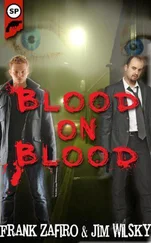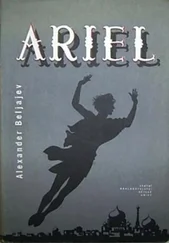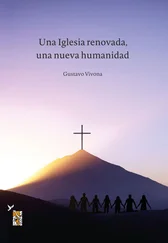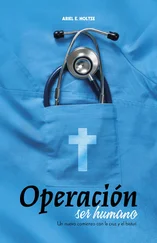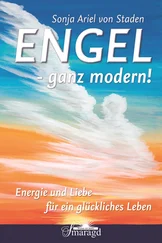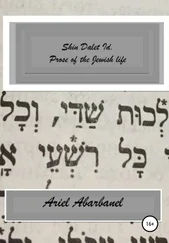Ariel Toaff - Blood Passover
Здесь есть возможность читать онлайн «Ariel Toaff - Blood Passover» весь текст электронной книги совершенно бесплатно (целиком полную версию без сокращений). В некоторых случаях можно слушать аудио, скачать через торрент в формате fb2 и присутствует краткое содержание. Жанр: Религиоведение, на английском языке. Описание произведения, (предисловие) а так же отзывы посетителей доступны на портале библиотеки ЛибКат.
- Название:Blood Passover
- Автор:
- Жанр:
- Год:неизвестен
- ISBN:нет данных
- Рейтинг книги:3 / 5. Голосов: 1
-
Избранное:Добавить в избранное
- Отзывы:
-
Ваша оценка:
- 60
- 1
- 2
- 3
- 4
- 5
Blood Passover: краткое содержание, описание и аннотация
Предлагаем к чтению аннотацию, описание, краткое содержание или предисловие (зависит от того, что написал сам автор книги «Blood Passover»). Если вы не нашли необходимую информацию о книге — напишите в комментариях, мы постараемся отыскать её.
Blood Passover — читать онлайн бесплатно полную книгу (весь текст) целиком
Ниже представлен текст книги, разбитый по страницам. Система сохранения места последней прочитанной страницы, позволяет с удобством читать онлайн бесплатно книгу «Blood Passover», без необходимости каждый раз заново искать на чём Вы остановились. Поставьте закладку, и сможете в любой момент перейти на страницу, на которой закончили чтение.
Интервал:
Закладка:
Two months later, by the end of June, upon conclusion of the first phase of the trials, the principle defendants, nine in total, including Samuele da Nuremberg, Angelo da Verona and the physician Tobias of Magdeburg, were condemned to death and executed. The old man Mosè da Würzburg had died in prison before being sentenced to execution. The trials were then all temporarily suspended by order of the Archduke of Austria, Sigismund. A few of the minor defendants, all of them from among the servants to the two principal money lenders and the physician Tobias, were in prison waiting to learn their fate. By contrast, the women of the small community were confined under house arrests in Samuele’s house, kept under surveillance by the bishop’s gendarmes.
Giovanni Hinderbach had taken a liking to the young convert, Israel Wolfgang, and had demonstrated his trust in him by admitting him freely to the castle and allowing him to sit at table among his servants and courtiers. But his trust was not entirely disinterested.
p. 210]
In the summer of 1475, Wolfgang, the convert painter, was in fact the only Christian in Trent who could read and understand Hebrew. This knowledge was indispensable to the young bishop, who, having confiscated the goods of the condemned, found himself in need of someone capable of deciphering the bank ledgers of the Jews, drawn up, as was normally the case, in Hebrew. The value of the pledges and the ownership by the citizens of Trent or foreigners could only be determined by means of a correct interpretation of the entries appearing in those books. In early June, Hinderbach decided officially to entrust Israel Wolfgang with the paid task of supervising the restitution and redemption of the collateral amassed in the vaults of the Jewish banks [652] On 8 June 1475 it was announced that Hinderbach "praelibatus Reverendissimus Dominus, attento quod non sit aliquis, qui libros Hebraicos dictorum Judaeorum legere sciat, cum supradictis libris nomina omnium qui habent pignora apud Judaeos scripta sint in Hebraicis litteris, nec alius sit qui dictos libros legere valeat, de quo verosimilius confidi possit, quam de suprascripto Israele, nun facto Christiano et nominato Wolfgango, eidem Wolfgango licentiam dedit quod possit exire de Castro etc."] [Approximately: “since His Most Rerevend Lordship saw that there was nobody else who could read what was written in the books of the Jews, said books containing notations as to all the pledges held by the Jews, written in Hebrew, and that nobody else who can be trusted is any good at reading them, except for the above mentioned Israel, who has now become a Christian and is called Wolfgang, he gave the said Wolfgang permission to leave the castle, etc.”] (cfr. [Bonelli], Dissertazione apologetica, cit., p. 140).
. The Saxon painter's new workplace was now the money lending shop formerly owned by the deceased Samuele da Nuremberg. Here, the young Wolfgang spent a great part of his time, working diligently and capably.
But at the same time, Israel Wolfgang had simultaneously decided to use his conversion as a disguise, permitting him more easily to help the Jewish women confined under house arrest, facilitating their escape and expatriation [653] Israel Wolfgang confessed to the Trent judges that, taking advantage of his new condition as a Christian, "volebat adjuvare judaeos, si potuisset" [“that he wanted to help the Jews, if possible”] (cfr. ibidem, p. 147).
. Of these his intentions he secretly informed his influential and powerful protector of these intentions: Salomone da Piove di Sacco, who had allowed Wolfgang to stay in his home as a guest, allowing him to meet his family and learn their secrets. The nearby city of Rovereto, located in the high valley of Lagarina, which belonged to the Republic of Venice and was therefore outside bishop Hinderbach’s jurisdiction, had been selected as the general headquarters of the representatives of the Ashkenazi community of the Veneto region for the task of making every effort to obtain the release of those defendants still in prison in Trent, and to invalidate the trials. Salomone Cusi, sent to Rovereto by Salomone da Piove, informed anyone who needed to know of Israel Wolfgang’s full preparedness to bring about the prisoners’ release, particularly the women, quickly, and without attracting attention [654] Cfr. Divina, Storia del beato Simone da Trento , cit., voI. II, pp. 87 -90.
. Jacob of Brescia, Jacob di Bonaventura da Riva, and Cressone da Nuremberg, some of the more prominent exponents of the “lobby” gathered at Rovereto, were perfectly well aware of the dangerous mission which the bold young Saxon, camouflaged as a Christian, had voluntarily assumed.
Jacob da Brescia was the brother of Rizzardo, accused of being one of the principal recipients of the blood originating from
p. 211]
the Regensburg child murder. The money lender did business at Gavardo, in the Bresciano region, and, in testimony of his authority, in 1467, Milanese officials referred to him as "the Jew who is the head of the other Jews" [655] On Jacob da Brescia, see, in particular, F. Glissenti, Gli ebrei nel Bresciano al tempo della Dominazione Veneta. Nuove ricerche e studi , Brescia, 1891, pp. 714; A. Gamba, Gli ebrei a Brescia nei secoli XV-XVI , Brescia, 1938, p. 31; F. Chiappa, Una colonia ebraica in Palazzolo a metà del 1400 , Brescia, 1964, p. 37; Sh. Simonsohn, The Jews in the Duchy of Milan , Jerusalem, 1982, vol. I, pp. 433, n. 1013 e 677, n. 1632.
. For more than a decade, from 1475 to 1488, Jacob di Bonaventura da Riva was generally considered the most influential banker at Riva del Garda [656] "Iacob Ebreus et socii habitator Ripae", [“Jacob the Jew, and associates, residents of Riva”], or "Iacob Ebreus et socii dantes ad usuram in Rippa" [“Jacob the Jew and his money-lending associates in Riva”], are very often recalled in the advisory orders of Riva del Garda and in the notarial documentation for the years 1475-1488 (cfr. M. Grazioli, L'arte della lana e dei panni nella Riva veneziana del sec. XV in due documenti dell'Archivio Rivano e Riva veneziano. Le uscite ordinarie , in "Il Sommolago", III, 1986, n. 1, pp. 109-120; IV, 1987, n. 3, pp. 5-54; M.L. Crosina , La comunità ebraica di Riva del Garda , sec. XV-XVIII, Riva del Garda, 1991, pp. 29-35). It is not entirely impossible that Jacob da Arco, of whom we know nothing, may be identical with this Jacob da Riva.
. Cressone (Gherson) was another highly prominent Ashkenazi Jew. A native of Nuremberg, he had reached Rovereto around 1460, but he had only received authorization from the Doge Nicolò Tron to bring his daughter and the family’s moveable capital from his native city in 1471 [657] The privilege of the Doge Nicolò Tron, relating to the transfer in 1471 of the daughter of Cressone da Nuremberg to Rovereto, is recalled by R. Po-Chia Hsia, The Myth of Ritual Murder. Jews and Magic in Reformation Germany , New Haven (Conn.) - London, 1988, p. 44.
. Starting in 1465, a patrician from Rovereto, Delfino Frizzi, had permitted him to live in his palace and to become associated with the Adige river navigation business [658] Cfr. G. Boldi, Gli estimi della città di Rovereto (1449, 1460, 1475, 1490, 1502), Rovereto, 1988, pp. XXV, 92,180, 343. Cressone, who at Rovereto lived in the Frizzi palace "under the Rock", possessed real property in the district.
. In his spare time, Cressone da Nuremberg also worked successfully in the money trade, an activity which often took him to the principal centers of the zone, between Riva del Garda [659] On Cressone’s banking activity, which included patrician families among his clients, such as the Counts of Lodron, see C. Andreolli, Una ricognizione delle comunità ebraiche nel Trentino tra XVI e XVII secolo , in "Materiali di lavoro", 1988, n. 1-4, pp. 157-158. On his involvement in the Riva del Garda affairs, see Crosina, La comunità ebraica di Riva del Garda , cit., p. 29.
.
Интервал:
Закладка:
Похожие книги на «Blood Passover»
Представляем Вашему вниманию похожие книги на «Blood Passover» списком для выбора. Мы отобрали схожую по названию и смыслу литературу в надежде предоставить читателям больше вариантов отыскать новые, интересные, ещё непрочитанные произведения.
Обсуждение, отзывы о книге «Blood Passover» и просто собственные мнения читателей. Оставьте ваши комментарии, напишите, что Вы думаете о произведении, его смысле или главных героях. Укажите что конкретно понравилось, а что нет, и почему Вы так считаете.


